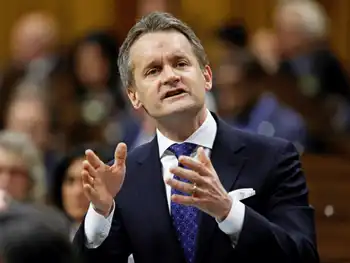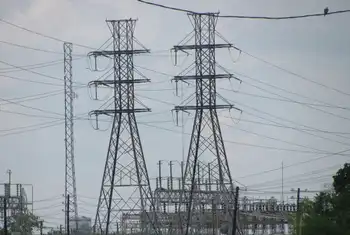China unveils carbon target for Copenhagen deal
The announcement came a day after the United States, the second biggest emitter of greenhouse gases behind China, unveiled a plan to cut emissions by 2020 and said President Barack Obama would attend the UN-led talks in Copenhagen.
China said Wen would go to the December 7-18 talks and pledged to cut the amount of carbon dioxide produced for each yuan of national income 40-45 percent by 2020, compared to 2005 levels.
It was hailed as a vital commitment toward rekindling talks to fix a new framework for tackling global warming, although analysts cautioned it was technically quite modest for China.
"The U.S. commitment to specific, mid-term emission cut targets and China's commitment to specific action on energy efficiency can unlock two of the last doors to a comprehensive agreement," said Yvo de Boer, head of the U.N. Climate Change Secretariat.
Danish Prime Minister Lars Lokke Rasmussen praised Wen's decision to attend and said China was "very active and constructive."
Even so, China's emissions were still likely to double by 2020 with the new target, said Frank Jotzo, deputy director of the Australian National University Climate Change Institute.
Without a goal "under a business as usual scenario, China's emissions might increase over two and a half times," he said.
"China has taken what is universally expected to happen, and dressed it up as a new and ambitious policy decision," said Bjorn Lomborg, a Danish statistician and author of "The Skeptical Environmentalist."
The UN talks have run out of time to settle a legally binding deal after arguments between rich and poor nations about who should cut emissions, by how much and who should pay. But hopes are growing that a substantive political pact can be agreed at the December meeting instead.
China's target comes after big emitters Brazil and Indonesia announced tough 2020 reduction targets. Thes 2020 target from the United States and Obama's attendance are also expected to help the Copenhagen talks, analysts say.
But in a reminder of the serious disputes that still shadow the summit, China's top climate envoy took aim at developed nations he said were slacking in their efforts to cut emissions and said the new Chinese target was only "domestically binding."
"So far we have not seen concrete actions and substantive commitments by the developed countries," Xie Zhenhua, deputy head of the planning body the National Development and Reform Committee, told a hastily arranged news conference in Beijing.
China's cabinet said its goal, which allows greenhouse gas emissions to grow as the economy expands, was a demanding one for the developing country. It will unveil new policies including taxes and financial steps to reach it.
The target does not include carbon sinks, Xie said, and will be calculated based on energy consumption and "production processes" — probably industrial output. Extra cuts could therefore come from forests, which absorb carbon dioxide.
Vice Foreign Minister He Yafei said the plan "shows China's highly responsible attitude toward the future of mankind."
A five-year drive to boost energy efficiency and renewables by 2010 will take Beijing around halfway to meeting the carbon intensity goal by the end of this decade.
But the country's still-rapid industrialization, and its efforts in recent years, meant harder work for smaller gains in future, said Dai Yande, deputy head of the Energy Research Institute under the National Development and Reform Commission.
"It's an arduous task for China, as everybody knows energy intensity tends to rise during industrialization and thus it's difficult to cut down emissions," Dai said.
China said the intensity goal was a "voluntary" one that would only be binding domestically, leaving room for negotiation about what international commitments Beijing will sign up for.
"I think the question that will immediately follow this is the favorite three initials that the United States keeps talking about, M, R, and V, how China is going to measure, report and verify these cuts," said Chris Raczkowski, China managing director for Ecofys, a renewable energy consulting company.
As a developing country, China is not obliged by current treaties to accept binding caps on its emissions, and it and other poor countries have said that principle should not change in any new deal that emerges from Copenhagen.
The United States will pledge to cut its greenhouse gas emissions roughly 17 percent below 2005 levels by 2020, a drop of about 3 percent below the 1990 benchmark year used in UN treaties — and far below the 25-40 percent cut outlined by the UN climate panel.
Australia's troubled carbon trade scheme was thrown into confusion after several opposition lawmakers resigned their party positions and promised to ignore a deal to support the government's planned laws.
Related News

Affordable, safe' nuclear power is key to reaching Canada's climate goals: federal minister
TORONTO - Canada must expand its nuclear power capacity if it is to reach its climate targets, according to Canadian Minister of Natural Resources Seamus Oregan.
Speaking to the Canadian Nuclear Association’s annual conference, Seamus O’Regan said the industry has to grow.
“As the world tackles a changing climate, nuclear power is poised to provide the next wave of clean, affordable, safe and reliable power,” he told a packed room.
The Ottawa conference was the largest the industry has run with dozens of companies and more than 900 people in attendance. Provincial cabinet ministers from Saskatchewan and Ontario were also there. Those two…





